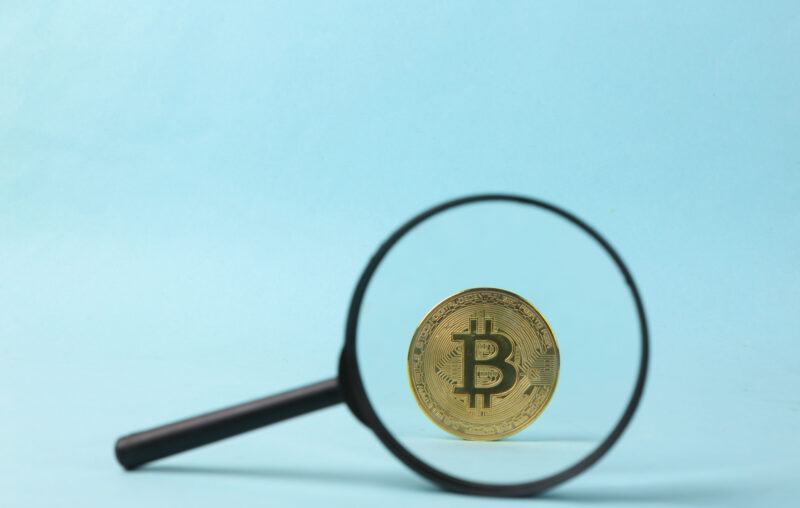
On January 10, over a decade after the primary Bitcoin spot Trade-Traded Fund (ETF) utility, the Securities and Trade Fee (SEC) lastly accredited eleven purposes on the identical day. Buying and selling started the following day, January 11. The latest spherical of approvals comes after a lot anticipation. The primary-ever utility for a Bitcoin spot ETF was again in 2013, from Gemini, an organization co-founded by the Winklevoss brothers. The SEC rejected Gemini’s utility in 2017 in addition to subsequent utility from the identical firm once more in 2018.
Trade-Traded Funds permit buyers to achieve publicity to Bitcoin’s worth volatility with out having to spend money on Bitcoin instantly. Be aware that the SEC normally refers to ETFs as ETPs (Trade-Traded Merchandise); ETFs are only one kind of ETPs.
The final sentiment throughout the Bitcoin-sphere was one in all pleasure. Bitcoin Journal known as the SEC’s approval “a historic milestone within the evolution of Bitcoin adoption inside conventional monetary markets.” Investor Balaji Srinivasan known as it “the religious reversal of Government Order 6102” (referring to FDR’s 1935 seizure of America’s privately-held gold). For a lot of, the SEC’s reluctant approval was seen as a little bit of institutional validation for Bitcoin – particularly after years of dismissal by the likes of multinational figures similar to Warren Buffet, Jamie Dimon, and Elizabeth Warren.
Even in SEC Chair Gary Gensler’s public assertion saying the Bitcoin spot ETF approval, he warned that “bitcoin is primarily a speculative, risky asset that’s additionally used for illicit exercise together with ransomware, cash laundering, sanction evasion, and terrorist financing.” (Gensler conveniently overlooks that fiat currencies, together with the US greenback, are additionally used for all the above).
Gensler additionally famous that the SEC basically had little selection however to approve the Bitcoin spot ETFs since “The US Courtroom of Appeals for the District of Columbia held that the Fee didn’t adequately clarify its reasoning in disapproving the itemizing and buying and selling of Grayscale’s proposed ETP…”
However a refreshing little bit of sentiment got here from SEC Commissioner Hester Peirce in a assertion of her personal. Within the assertion, Peirce accused the SEC of treating Bitcoin spot ETPs unequally to (extra harshly than) different kinds of ETP purposes through the years. As she put it, “The goalposts stored shifting because the Fee slapped ‘DENIED’ on utility after utility.”
Commissioner Peirce’s full assertion deserves a learn, however the last paragraph specifically displays what I believe is a principled stance in keeping with a free society:
I’m not celebrating bitcoin or bitcoin-related merchandise; what one regulator thinks about bitcoin is irrelevant. I’m celebrating the correct of American buyers to precise their ideas on bitcoin by shopping for and promoting spot bitcoin ETPs. And I’m celebrating the perseverance of market contributors in making an attempt to deliver to market a product they suppose buyers need. I commend candidates’ decade-long persistence within the face of the Fee’s obstruction.
A private perspective
Whether or not regulators that occur to be extra hostile to Bitcoin (and “crypto” extra typically) prefer it or not, the SEC’s Bitcoin spot ETF approval does present a robust counter-narrative to the “Bitcoin is for medication, cash laundering” objection. The approval actually has the potential to considerably improve Bitcoin’s buying energy over time (which we will simply measure utilizing its fiat-denominated worth) as new institutional cash flows into Bitcoin.
There are two issues to observe for right here, nevertheless: one concerning Bitcoin’s consensus and the opposite concerning self-custody.
1. Consensus
As Bitcoin has a highly-decentralized governance mannequin, no single stakeholder or a number of colluding stakeholders (miners, full node operators, programmers, customers, exchanges, pockets suppliers, fee processors) are capable of change it to their very own profit with out reaching an general consensus from the others. Satoshi Nakamoto, Bitcoin’s creator, understood incentives and a little bit of recreation principle.
As large monetary establishments improve their holdings (instantly or not directly) of Bitcoin over time, there may be prone to be huge strain to bend Bitcoin’s guidelines in direction of, say, compliance with the US Treasury’s Workplace of Overseas Property Management (OFAC) sanctions. (To grasp the current regulatory local weather, notice that in 2022, OFAC started sanctioning crypto mining operations in Russia and even Ether pockets addresses alleged to be linked to North Korean hackers).
In Bitcoin, present norms function a Schelling level: a consensus level the place folks converge with out a lot coordination. As such, it isn’t tough to think about a so-called laborious fork taking place over competing visions of the Bitcoin protocol, leading to a cut up into two separate cash, each calling themselves “Bitcoin” (this wouldn’t be the primary time). The primary “Bitcoin” could be regulator-friendly and institutionally backed. The second could be a permissionless, censorship-resistant, “OG” Bitcoin, as I’ll discuss with it right here for simplicity.
If such a cut up have been to occur, we might think about regulators in the US and Europe, for instance, forbidding cryptocurrency exchanges from facilitating trades of the “OG” Bitcoin that exists in the present day. Moreover, miners of the “OG” Bitcoin might come beneath heavy assault for numerous causes (with a inexperienced vitality agenda, for instance), pushing their operations to international locations much less politically aligned with the US and Europe. (And, as a facet notice, this may even additional complicate the American and European governments’ means to sanction any nation at will).
To be clear, none of those assaults on the free and open “OG” Bitcoin fee community would kill it. Removed from it. Nevertheless it does push its stakeholders to the fringes, legally talking. Moreover, what Bitcoin’s political and regulatory enemies overlook is that the extra they ramp up assaults towards it utilizing (typically) legally questionable and authoritarian means, the extra they – fairly mockingly – improve the worth proposition for a free and open fee community. That’s, crackdowns towards it create new demand for it. It’s because individuals who discover themselves dwelling in authoritarian regimes hunt down instruments to keep up some ingredient of human dignity.
2. Self-custody
As for self-custody, it’s price a fast revisit of what Satoshi initially had in thoughts. His whitepaper known as Bitcoin a “Peer-to-Peer Digital Money System.” Peer-to-peer meant no centralized third-party custodians wanted. In truth, getting away from centralized third-parties altogether was the important thing breakthrough that Bitcoin achieved after a few many years of Cypherpunk debates and earlier makes an attempt. (See my detailed desk for extra on this).
As David Waugh rightly famous, taking self-custody of Bitcoin your self protects you towards a authorities that “would possibly be capable to seize the asset supervisor’s bitcoin or order it to liquidate the ETF.”
Maybe unsurprisingly, the US Treasury Division refers to self-custody (“non-custodial”) cryptocurrency wallets in a kind of derogatory method, labeling them “unhosted wallets” – a reputation that means {that a} official manner of doing funds (from Treasury’s viewpoint) is for cryptocurrency customers to belief third events (a “host”) that may be simply coerced by the regulatory equipment at hand over consumer funds at will. However even when we dismiss the chance of a predatory state, the exchanges themselves could be unreliable, to say the least. Blockchain analytical service Glassnode famous that within the aftermath of the FTX collapse of November 2022, each institutional and retail customers withdrew funds from centralized exchanges, en masse, leading to important internet outflows, with customers shifting funds into self-custody. Self-custody radically protects property rights.
Ultimate phrases
Whereas the SEC’s long-overdue approval of a Bitcoin spot ETF deserves a little bit of celebration, be careful for what’s subsequent. The state equipment will, for probably the most half, more and more deal with Bitcoin as a regulated monetary product – one thing that BlackRock and the remainder of Wall Avenue can revenue from. As such, it’s prone to flip much more hostile to the Peer to Peer open fee community idea that Satoshi envisioned. Nation-states stay jealous of Bitcoin’s competitors with their inflationary monopoly cash.
